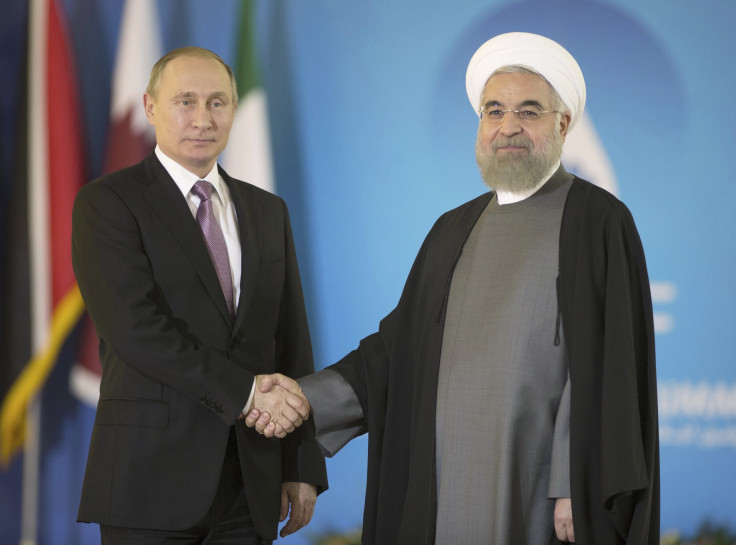Iran's Leader Hosts Russia's Putin, Criticizes US Policies

By Bozorgmehr Sharafedin
DUBAI, United Arab Enmirates (Reuters) -- Iran's supreme leader, at a meeting with Russian President Vladimir Putin in Tehran, said on Monday U.S. policies in the Middle East region were a threat to both countries and called for closer ties between Tehran and Moscow.
The civil war in Syria has evolved into a wider proxy struggle between global powers, with Russia and Iran supporting Syrian President Bashar Assad while Western powers, Turkey and Gulf Arab states want him out.
"The Americans have a long-term plot and are trying to dominate Syria and then the whole region ... This is a threat to all countries, especially Russia and Iran," Ayatollah Ali Khamenei said, according to his website, at the meeting on the sidelines of the Gas Exporting Countries Forum (GECF) Summit in Tehran.
"The United States is now trying to achieve its failed military objectives in Syria by political means," he added, referring to proposed peace talks to end the civil war in Syria.
The U.S. State Department pushed back against the remarks, saying its only intentions in Syria are to help find a peaceful solution to the conflict there.
"It's somewhat of a continuation of a pattern that we've seen from the supreme leader in terms of ... over-the-top rhetoric about the United States and our intentions," department spokesman Mark Toner told reporters in a briefing on Monday.
At a meeting in Vienna this month following deadly attacks in Paris and Beirut, world powers, including Russia, the United States and countries from Europe and the Middle East agreed on a political process in Syria leading to elections within two years, but differences remained on key issues such as Assad's fate.
A Kremlin spokesman was quoted by Interfax news agency as saying that Putin and Khamenei had agreed at their talks that global powers should not impose their political will on Syria.
Putin, on his first visit to Iran since 2007, presented an old edition of the Koran, the Muslim holy book, to Khamenei, the Iranian leader's website said, publishing photos of the book.
Khamenei praised Putin for "neutralizing Washington's plots" and said economic relations between the two countries could "expand beyond the current level".
Tehran and Moscow have stepped up ties following a landmark nuclear deal in July between Iran and six world powers including Russia and the United States. Under the deal, Tehran agreed long-term curbs on its nuclear program in exchange for an easing of economic sanctions.
On Monday Putin relaxed an export ban on nuclear equipment and technology to Iran.
Iran's ambassador to Russia also said on Monday that Moscow had started the process of supplying Tehran with an S-300 anti-missile rocket system.
Russia and Iran are undertaking joint military action in support of Assad. Backed by Russian air strikes, hundreds of Iranian troops have arrived since late September to take part in a major ground offensive planned in western and northwestern Syria, their biggest deployment in the country to date.
(Additional reporting by Arshad Mohammed and Susan Heavey in Washington; editing by Gareth Jones and Cynthia Osterman)
© Copyright Thomson Reuters 2024. All rights reserved.





















